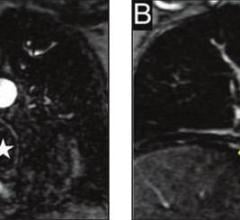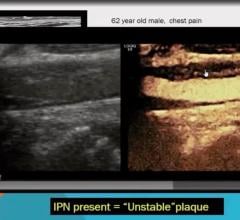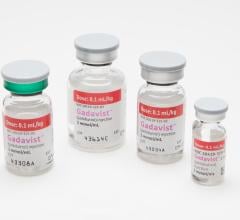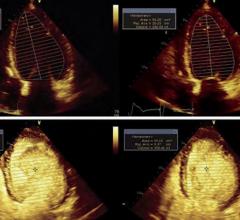June 25, 2008 - Lexiscan (regadenoson) injection, an A2A adenosine receptor agonist, for use as a pharmacologic stress agent in radionuclide MPI in patients unable to undergo adequate exercise stress, is now commercially available, reported Astellas Pharma U.S. Lexiscan, co-developed with CV Therapeutics, is the first A2A adenosine receptor agonist shown to be safe and effective as a pharmacologic stress agent in MPI studies. The A2A adenosine receptor subtype is primarily responsible for coronary vasodilation. "Our clinical experience shows that an increasing number of patients are requiring pharmacologic stress agents for MPI studies," said Gregory Thomas, M.D., clinical aassociate professor of medicine and director of nuclear cardiology education at the University of California at Irvine School of Medicine. MPI tests, commonly called cardiac stress tests, identify areas of poor blood flow in the heart to determine the extent of coronary artery disease, a condition that affects 16 million Americans and is responsible for more than 450,000 deaths annually in the United States. Many patients exercise on a treadmill to generate the increase in coronary blood flow necessary to perform an MPI study. However, almost half of patients undergoing cardiac stress tests each year are unable to exercise adequately because of medical conditions. For these patients, a pharmacologic stress agent that temporarily increases blood flow through the coronary arteries is used to mimic the increase in coronary blood flow caused by exercise. About 7.5 to 9.3 million MPI studies were performed last year in the U.S. In two identically designed Phase III clinical trials, Lexiscan met primary endpoints for scan agreement rates by showing with 95 percent confidence that MPI studies conducted with Lexiscan were similar to MPI studies conducted with Adenoscan (adenosine injection). Lexiscan was generally well-tolerated in both Phase III studies. The most common adverse events reported in patients who received Lexiscan were shortness of breath, headache, flushing, chest discomfort, angina or ST-segment depression, dizziness and nausea. For more information: www.Lexiscan.com
If you enjoy this content, please share it with a colleague
Astellas Launches New Stress Agent for Radionuclide MPI
Related Content
August 17, 2023 — University of Missouri School of Medicine neurologist Adnan Qureshi, MD recently led a study that ...
July 3, 2023 — According to an accepted manuscript published in ARRS’ own American Journal of Roentgenology (AJR) ...
May 11, 2021 — The American Institute of Ultrasound in Medicine (AIUM) and the American Society of Echocardiography (ASE ...
July 15, 2019 — The U.S. Food and Drug Administration (FDA) has approved Gadavist injection for use in cardiac magnetic ...
Sharon Mulvagh, M.D., FASE, FACC, FRCPC, professor of medicine, division of cardiology, Dalhousie University, Halifax ...
Iodine-based contrast agents used in computed tomography (CT) and catheter-based angiography have been implicated as a ...
May 9, 2019 — Osprey Medical announced the launch of DyeMINISH, a global patient registry to evaluate the ongoing safety ...
November 30, 2018 — VigiLanz and Cincinnati Children’s Hospital Medical Center recently announced a collaboration that ...
In February 2018, a workshop was held at the National Institutes of Health (NIH) in Bethesda, Maryland, to explore ...
January 19, 2018 — Ligand Pharmaceuticals Inc. announced initiation of a program to develop contrast agents with reduced ...


 August 17, 2023
August 17, 2023 








